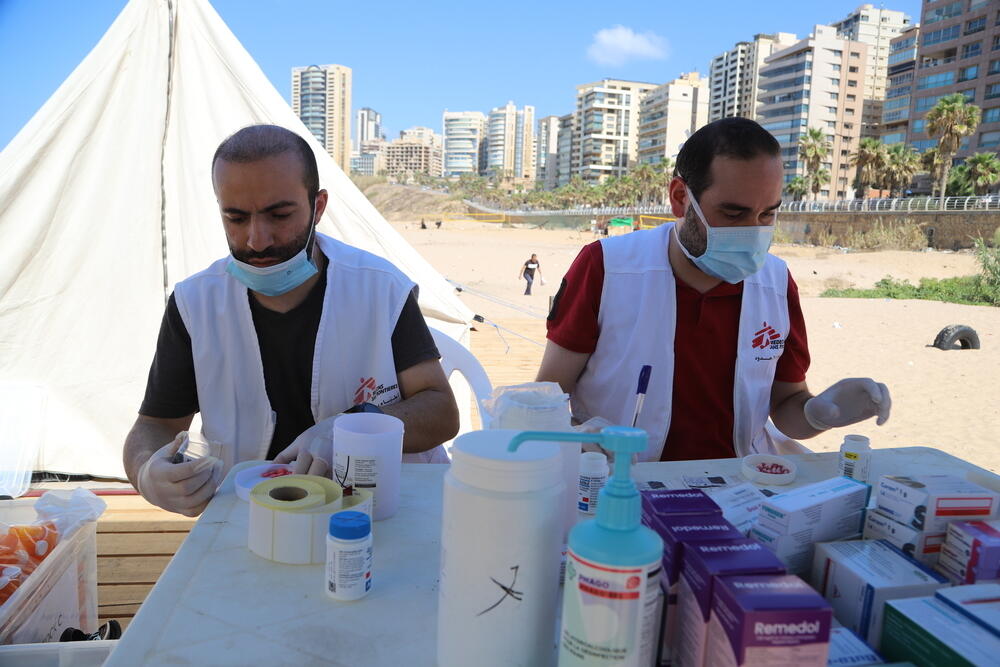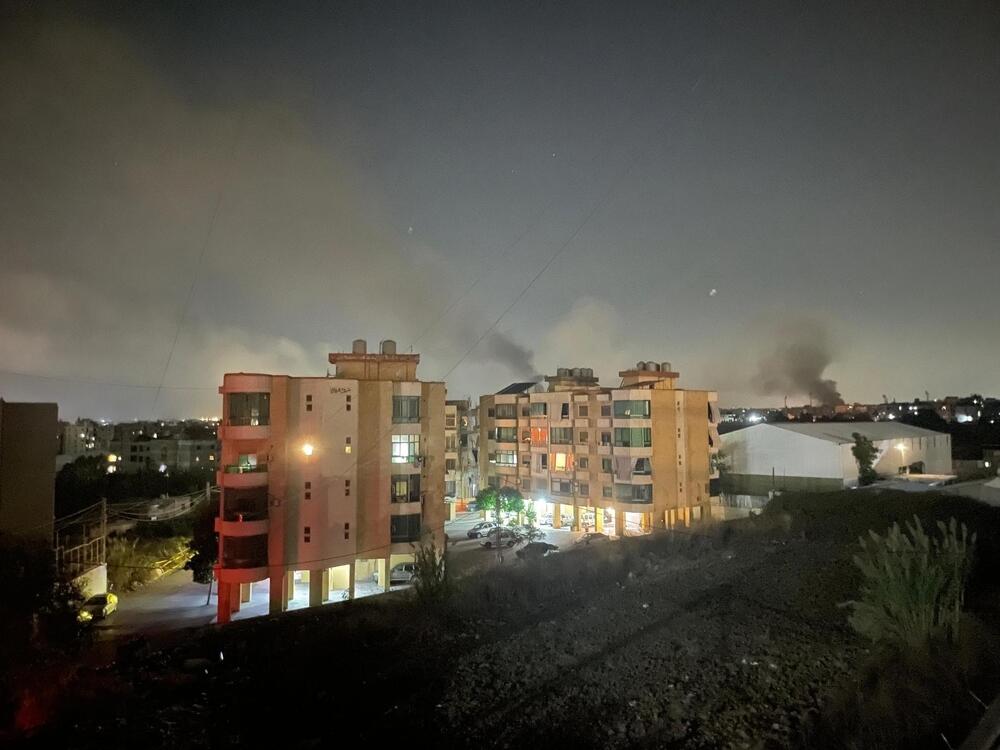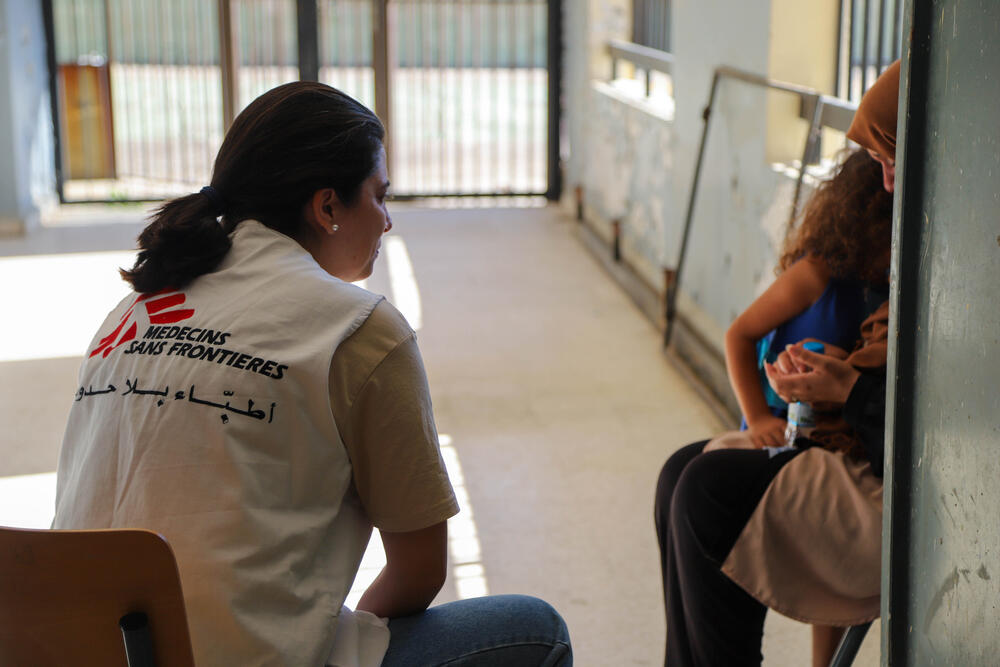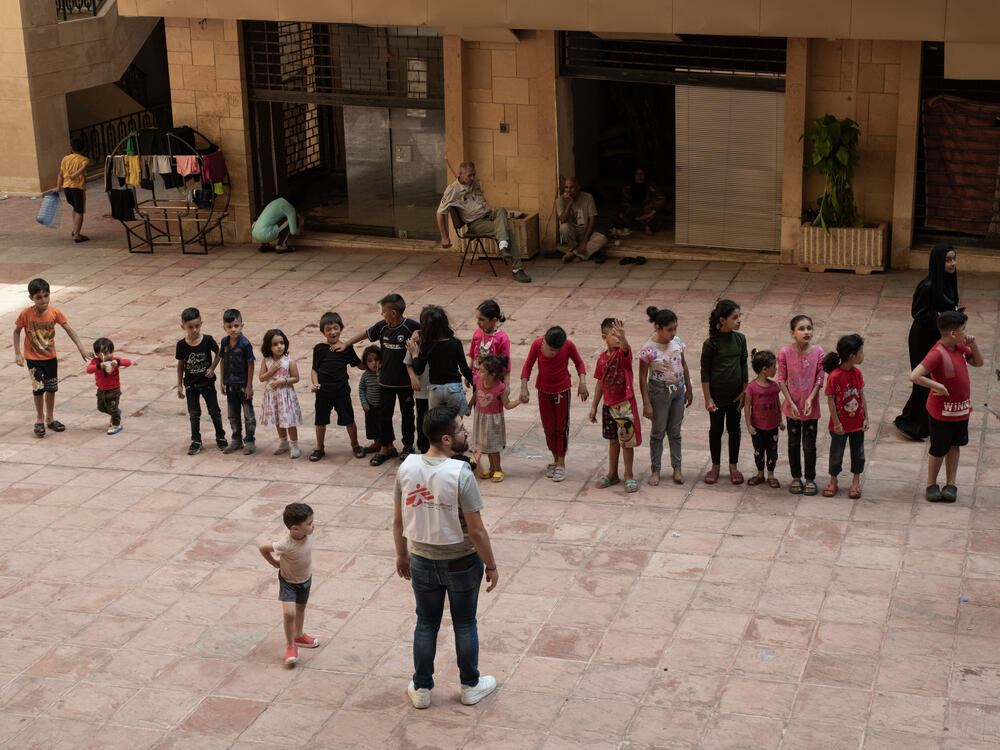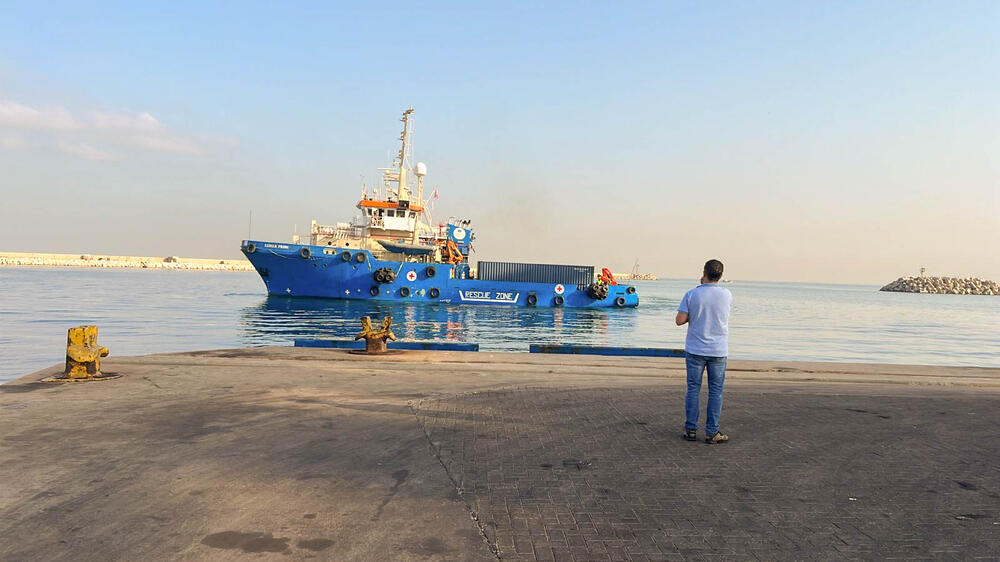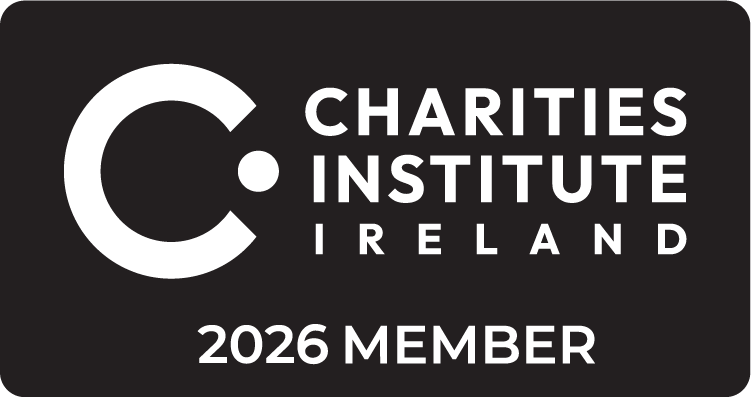Lebanon: How MSF is responding amid latest escalation
18 November 2024
*This page is continuously updated.
Following widescale Israeli airstrikes of multiple areas in Lebanon, Médecins Sans Frontières teams are working around the clock to respond to escalating humanitarian needs.
Our teams are providing medical and mental health consultations, including at mobile clinics in locations where displaced people have taken shelter. They have donated essential items including mattresses, blankets, and hygiene kits to people who have been forced to flee their homes. We are actively assessing the needs to scale up support.
Since 23 September, some of our staff in south Lebanon, Beirut and other parts of the country have fled their homes, spending hours in traffic as they seek refuge in safer locations. In south Lebanon and Baalbek-Hermel – areas that have experienced heavy aerial strikes – MSF staff reported bombardments close to their homes. Many of our staff have sheltered in their homes as Israeli warplanes continued to fly overhead and throughout the night.
“On Monday morning at 6:30am, we woke up to hysterical strikes against mountains and valleys, shelling villages from Baalbeck to Hermel. Children woke up frightened, and people went outside,” says Maram, a Health Promotion Supervisor with MSF in Lebanon.
“All we could hear was the sound of ambulance sirens. We saw smoke with each strike, and the bombardment was very close to houses. My work colleagues left their homes in Hermel, Al-Ain and Laboueh, and took refuge in schools or uncovered houses out of fear.”
In recent weeks, the Azarieh shelter, once a bustling commercial center in the heart of Beirut, has been transformed into a refuge for people displaced by the ongoing Israeli bombardment in Lebanon. This makeshift shelter, now housing more than 2,500 people, is one of over 800 across the country according to national authorities. Conditions here are dire, as the facility was never intended for long-term living, leaving families struggling without adequate resources, and basic needs.
How is MSF responding in Lebanon?
MSF is gravely concerned about Israel’s bombing campaign in Lebanon, much of which is taking place in densely populated urban areas. We call for the immediate de-escalation of hostilities to prevent further suffering, injury, and loss of life.
o In response to the recent escalation of the conflict and intense Israeli bombings in Lebanon, MSF has deployed 22 mobile medical teams across various governorates in the country, namely Beirut, Mount Lebanon, South (Saida), North (Tripoli), Bekaa, Baalbek and Akkar, offering mainly primary healthcare and mental health support.
o MSF teams are also distributing blankets, mattresses, and hygiene kits, as well as supplying water by trucks in schools and shelters where displaced people are taking shelter. We have also been providing hot meals and drinking water to hundreds of displaced families (for specific numbers please see the section on ‘emergency response’ below).
o We also donate fuel and medical and non-medical supplies to several hospitals in addition to the trauma kits and 88 tons of supplies we prepositioned/donated in/to medical facilities across the country since November 2023 to September 2024 and have already trained more than 400 hospital staff in trauma care and mass casualty management in 10 different hospitals.
o As on 11 November 2024, our medical teams have also started to provide direct hands-on support to the Baabda hospital (Beirut Governorate) in its emergency room and one operating theatre, and to the Turkish hospital (Southern Governorate) in its operating theatre, emergency room and inpatient department.
o In addition to our emergency response, MSF runs and supports health facilities in six locations, providing general, pediatric, reproductive, and mental healthcare, treatment for non-communicable diseases and health promotion. Some of our regular activities in Baalbek-Hermel and Beirut have been disrupted due to intense Israeli airstrikes in the area. However, despite the challenging context, our teams are doing their best to maintain their regular activities and ensure continuity to healthcare to patients in our projects around Lebanon.
Our calls:
Considering the already high number of civilians casualties, both killed and wounded, including numerous children, women, and healthcare workers:
o We remind all parties that civilians and civilian infrastructures must always be protected. Protection of medical staff, medical facilities and patients must also be guaranteed at all times.
o Humanitarian and medical assistance must be able to reach those in need across the country, and in most affected areas. While humanitarian actors are adapting modalities of intervention – such as supply distribution within UN-led humanitarian convoys -, we call on parties to the conflict to ensure security and safety measures for humanitarian aid delivery.
o Many of the displaced populations are in mountainous regions where the winter will be harsh and severe. While MSF is making efforts to support them, there is an urgent need for aid organizations and local authorities to winterize shelters, provide heating solutions, adequate water, sanitation, and hygiene facilities, and distribute warm clothing and blankets to the vulnerable population. We call on the international humanitarian community – and donors in particular – to urgently increase winterization efforts in scope and scale.
o We also call on international actors to step up their efforts to reduce the tensions in the region and prevent further suffering, injury, and loss of life, as well as a further deterioration of the already precarious humanitarian situation in Lebanon.
MSF in Lebanon
We have been working in Lebanon since 1976, when we began our response to the 15-year civil war. Today, we continue to adapt our long-term activities to cover the needs of Lebanese people, as well as refugees and migrants, who often have limited access to medical care.
